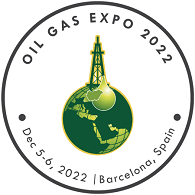How petroleum is formed
It is made up of naturally occurring hydrocarbons with varying molecular weights, as well as other organic molecules. Both naturally occurring unprocessed crude oil and petroleum products made up of refined crude oil are referred to as petroleum. Petroleum is a fossil fuel that forms when enormous amounts of dead animals, usually zooplankton and algae, are buried beneath sediment. Petroleum refers to any liquid, gaseous, and solid hydrocarbons, including crude oil.
Composition by weight
Carbon 83 to 85%
Hydrogen 10 to 14%
Nitrogen 0.1 to 2%
Oxygen 0.05 to 1.5%
Sulfur 0.05 to 6.0%
Metals < 0.1%
Related Conference of How petroleum is formed
How petroleum is formed Conference Speakers
Recommended Sessions
- About hydrocarbons
- Biofuels and biodiesels
- Different stages in oil and industries
- Drilling and service companies
- Enviornmental impact
- Extraction techniques
- Food industry affected by changes in oil prices
- How oil and gas industry works
- How petroleum is extracted
- How petroleum is formed
- Impact of covid on oil and gas industry
- Methane gas production
- Natural gas
- Oil and gas industries
- Petroleum products used in different areas
- Replacement of oil and gas energy
- Structure of oil and gas industries
- Understanding oil production numbers
- Use of oil and gas in medical field
- Uses of different types of gases
- Why oil and gas industry is important

